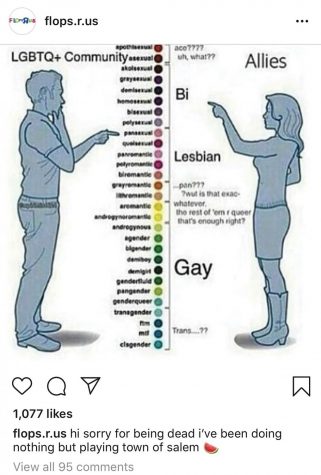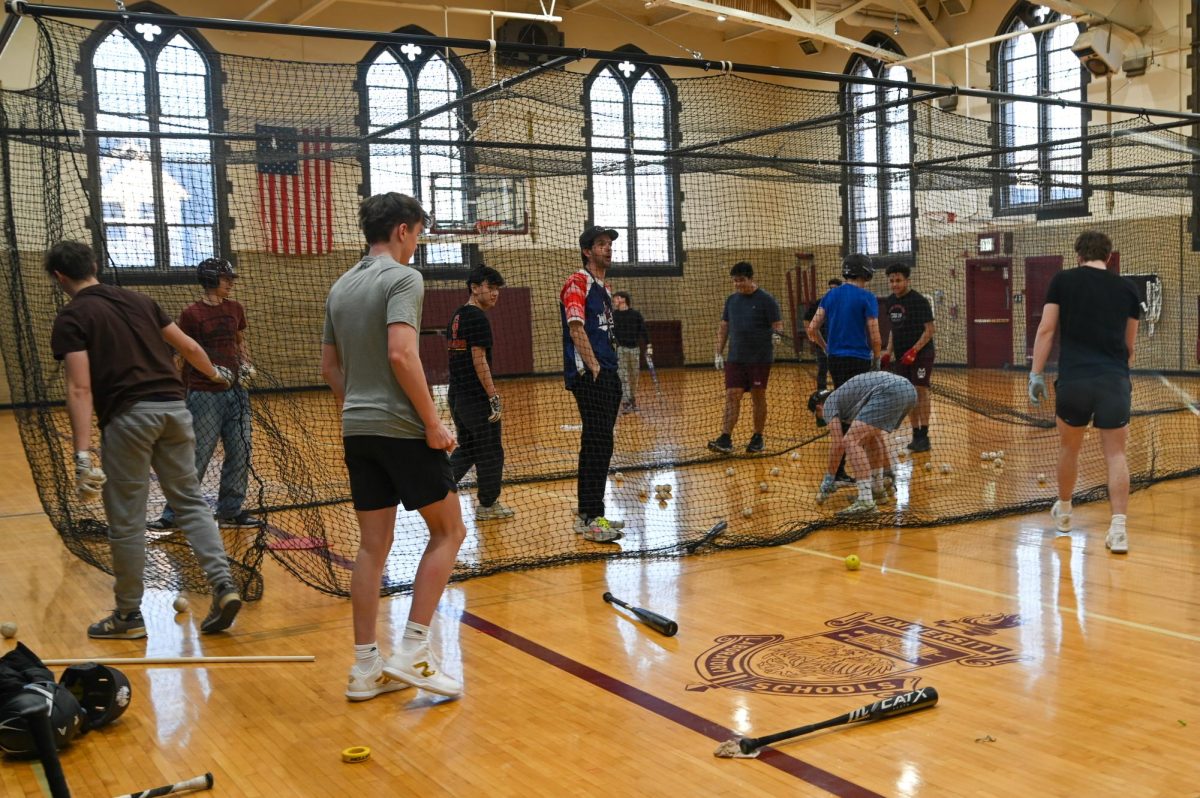‘Flop’ accounts provide forum for discussion
Instagram accounts calling out social mishaps have exploded in popularity, an initiative recently sparked by teens seeking social and political discourse
October 12, 2018

“Most people who follow these accounts are either a part of Generation Y or Generation Z,” sophomore Maddie Kolb, who runs an Instagram “Flop Account,” said. “It’s refreshing to see the opinions of those near your age group rather than receiving them.”
Maddie is just one of many teenagers across the country that have begun to use their Instagram to engage with complex socio-political issues with “flop accounts.”
“Flop accounts” are Instagram accounts that host images or text-posts of “flops,” which are instances where account administrators believe that people have said or done something incorrect or dumb.
These “flops” often relate to major political, social or cultural issues, which give teenagers an enclave to discuss these issues.
“It’s a nice community to find others who share your beliefs, as well as debate with others who disagree,” Maddie said.
Taylor Lorenz is a tech writer for the Atlantic magazine, who earlier this year examined flop accounts.
In an interview with the Midway, Ms. Lorenz said that “Many teenagers want to really feel heard and there aren’t a lot of places where they can do so without adult or other interventions.”
Although the lack of authoritative sources may seem like a problem, Ms. Lorenz found that flop account administrators value getting correct information.
She said, “Everyone was really into fact checking and confirming information.”
Determining flops can be very subjective, which is often taken into consideration by the account administrators.
“Deciding what is and isn’t a flop pretty much depends on what your views are,” Maddie said. “There are some flop accounts directed at some specific people, which sit at the borderline of cyberbullying, which I don’t think is OK. Every flop we post can be debated on whether it is truly a flop. Some are in the gray area more than others.”
Even though all of their followers may not agree with it, flop accounts allow these account administrators a soapbox on which to broadcast their ideas.
“I wanted to share my opinion on controversial and important topics, rather than just leaving them in a comment for it to get lost among posts,” Maddie said. “I could control what I posted and what others commented.”
These flop accounts have had a meteoric rise in exposure.
“I first found out about flop accounts in April or May,” Ms. Lorenz said. “They were popular on the Instagram explore page, so I started asking around and it turned out that someone that I knew ran a flop account.”
Maddie also found out about flop accounts on her Instagram explore page.
“I spend a decent amount of time on Instagram, especially over the summer,” Maddie said. “That’s when I first saw one on my explore page which was of the bigger accounts that was dedicated to ‘flops.’”
This rise in exposure illustrated to Maddie how great flop accounts are as a medium to communicate ideas.
“It’s also easier to put yourself out there, rather than starting your own blog or website,” Maddie said. “Thanks to Instagram’s explore page, as you gain attention and followers, your exposure grows rather exponentially.”
However, this change is not inexplicable. In fact, it may be a natural evolution of teenagers’ usage of Instagram.
“Teens spend a lot more time on Instagram than older users,” Ms. Lorenz said. “Younger users have more of their social network on Instagram.”
This translates into revolutionary usages of Instagram.
“The majority of the [flop account] community seemed to be kids all under 20 years old,” Lorenz said. “I write a lot about the different ways people use tech platforms, and this furthers the narrative that young people use these platforms very differently than even people of my generation. We mostly just use it to post pretty pictures.”































































Sofia Walmont • May 21, 2019 at 2:33 am
Instagram would better be used for promotional purposes and not political especially among teenagers.